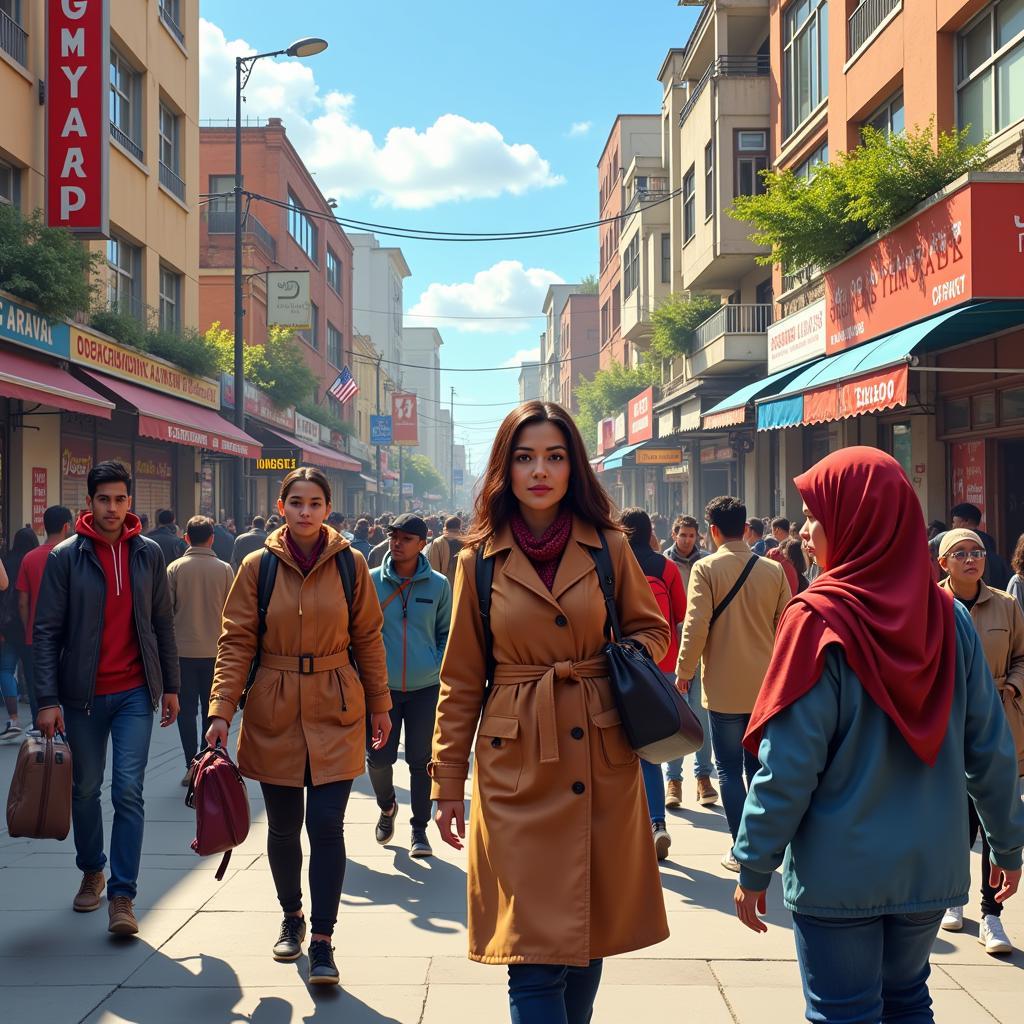Immigration and society have been intertwined throughout history, shaping cultures, economies, and social structures. This article delves into the complex relationship between immigration and society from both historical and sociological perspectives, exploring its multifaceted impact and the ongoing debates surrounding it.
A Historical Overview of Immigration
Human history is a story of migration. From early nomadic tribes following resources to mass movements spurred by conflict or opportunity, immigration has been a constant. The ancient world saw empires rise and fall, often fueled by the influx of people and ideas. The Roman Empire, for instance, relied heavily on immigration for labor and military strength. Similarly, the Silk Road facilitated not just trade but also cultural exchange and migration across vast distances.
The Age of Exploration and Colonization
The Age of Exploration and subsequent colonization dramatically reshaped global migration patterns. European powers established colonies across the globe, leading to forced migrations of enslaved people and indentured laborers, as well as voluntary migration of colonists seeking new lives. This period had a profound and lasting impact on the demographics and social structures of both the colonizing and colonized societies.
Immigration in the Modern Era
The Industrial Revolution and the rise of nation-states brought new challenges and opportunities for immigrants. Industrialized nations attracted large numbers of workers seeking better economic prospects. This led to the development of new immigration policies and regulations, often reflecting complex social and political anxieties about national identity and cultural change.
 Modern Immigration in Urban Centers
Modern Immigration in Urban Centers
Sociological Perspectives on Immigration
Sociology provides a framework for understanding the social processes and consequences of immigration. Key sociological theories examine how immigrants integrate into host societies, the formation of ethnic enclaves, and the impact of immigration on social cohesion and conflict.
Assimilation and Integration
The concept of assimilation posits that immigrants gradually adopt the cultural norms and values of the host society. However, more recent theories emphasize the process of integration, which acknowledges the maintenance of cultural identity alongside adaptation to the new society. This recognizes the dynamic interplay between immigrant cultures and the existing social fabric.
The Role of Social Networks
Social networks play a crucial role in the immigrant experience. Family and community ties provide support, resources, and a sense of belonging in a new environment. These networks can facilitate economic advancement, cultural preservation, and political participation, but they can also lead to social isolation if they are limited to within-group interactions.
 Immigrant Social Networks: Support and Community
Immigrant Social Networks: Support and Community
Immigration and Social Stratification
Immigration often intersects with existing social inequalities. Immigrants may face discrimination in employment, housing, and access to resources based on their ethnicity, nationality, or legal status. This can lead to social stratification, with immigrants concentrated in lower socioeconomic positions. However, immigrant entrepreneurship and upward mobility also contribute to economic growth and social dynamism.
Immigration and Social Change
Immigration is a powerful driver of social change. The influx of new people and ideas can lead to cultural innovation, economic growth, and political reform. However, it can also spark social tensions and conflicts, particularly when issues of identity, resources, and power are at stake. Understanding these dynamics is crucial for fostering peaceful and inclusive societies.
Conclusion
Immigration And Society: A Historical And Sociological Approach reveals a complex and multifaceted relationship. Throughout history, immigration has shaped the destinies of nations and the lives of individuals. By understanding the historical context and sociological dynamics of immigration, we can better address the challenges and opportunities it presents, fostering societies that are both diverse and cohesive.
FAQ
- What is the difference between assimilation and integration?
- How do social networks impact immigrant experiences?
- What are some of the challenges immigrants face in a new society?
- How does immigration contribute to social change?
- What are some key sociological theories related to immigration?
- How has immigration impacted historical empires and societies?
- What are some current debates surrounding immigration policy?
Please contact us for assistance at Phone Number: 02043854663, Email: [email protected], or visit our address at Khu 34, Bắc Giang, 260000, Vietnam. We have a 24/7 customer service team.